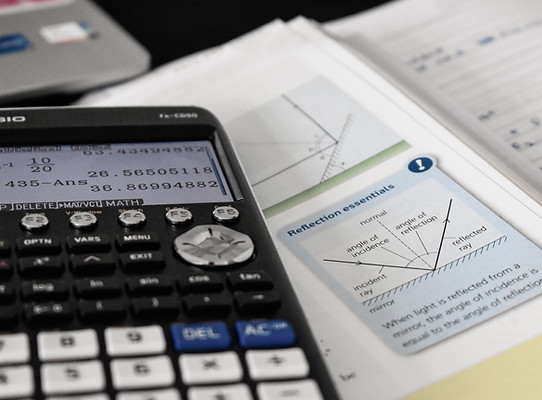
Mathematics 數學
Why teach Maths at an early age?
Mathematics train young students to
-
problem solve
-
measure
-
calculate
Recommended start age for mathematics training are 5-7. Beginning skills of calculations of addition and subtraction will be taught, furthering to fractions and multiplications. Logical understanding of time, money and shapes will also be part of the beginning syllabus.
Academic Tutoring:
Apart from early age maths interest classes, UK MET offers academic tutoring for students in kindergarten, primary school and secondary school for DSE, IGCSE, A-levels and IB.
The IB MYP math program
The MYP mathematics framework encompasses number, algebra, geometry and trigonometry, statistics and probability.
Students in the MYP learn how to represent information, to explore and model situations, and to find solutions to familiar and unfamiliar problems. These are skills that are useful in a wide range of arenas, including social sciences and the arts.
In the MYP, the topics and skills in the framework for mathematics are organized so that students can work at two levels of challenge:
* Standard mathematics, which aims to give all students a sound knowledge of basic mathematical principles while allowing them to develop the skills needed to meet the objectives of MYP mathematics
* Extended mathematics, in which the standard mathematics framework supplemented by additional topics and skills, providing greater breadth and depth.
IBDP math program offers:
* Mathematics: analysis and approaches SL
* Mathematics: analysis and approaches HL
* Mathematics: applications and interpretation SL
* Mathematics: applications and interpretation HL
The aims of these courses are to enable students to:
* enjoy and develop an appreciation of the elegance and power of mathematics
* develop an understanding of the principles, concepts and nature of mathematics
* communicate clearly and confidently in a variety of contexts
* develop logical, critical and creative thinking, and patience and persistence in problem-solving
* employ and refine their powers of abstraction and generalisation






Material and Method Sample
SAP Maths Problem-Solving Strategies
"The primary aim of Maths Problem-Solving Strategies Books 1-6 is to help pupils develop their mathematical thinking skills and expand their knowledge of mathematical concepts and formulae. Each book provides ample practice on various routine and practical mathematical problems. The topics selected for each level are based on the latest syllabus.
Examples of common word problems are given followed by the step-by-step working to show the process of problem solving. In Maths Problem-Solving Strategies Books 3-6, notes are included. These notes highlight important and relevant mathematical concepts and formulae. Challenging problems, which are indicated with asterisks, are also found in each topic.
These challenge pupils to master their skill in higher-order thinking. Revision papers provide an overall assessment of the pupils’ progress in learning these mathematical concepts. Pupils will find this book useful in preparing for their examinations." (Teo)
UK MET的數學課程由具有數年教學經驗、香港三大數學系前1%畢業的老師任教。多年來,UK MET教出數十名DSE數學5*、Alevel數學實考A的優異學生,幫助他們進入香港頂尖名校。同時,UK MET也致力於低年齡層的數學教育,提高學生的邏輯思維,打牢學生的數學基礎,為學生進入Band 1A、IB、Alevel名校做好準備。我們擁有從幼稚園到中六的教學資料與最全題庫,教學進度規劃完善,重點解說數學概念,幫助學生在應試時掌握題目重點,力奪高分!
AMC數學競賽
經過多年發展,AMC已經逐漸成為全球最被公認的,證明學生數學能力的比賽。
而從升學角度而言,在歐美,AMC的獎項幾乎已成為進入常春藤名校的必備成績,MIT、Yale、Caltech等名校更是在申請表上要求學員提供AMC 10/12及AIME的成績。在香港,AMC比賽也是諸如拔萃男書院、聖保羅男女中學等數理名校每年的重頭戲,更是參加香港Prelim Selection(國際數學奧林匹克香港代表選拔賽)之前最好的試金石。
在UK MET,我們富有經驗的AMC導師會傾盡全力幫助學生學習競賽方法和解題技巧,以各種非標準的數學問題,鼓勵學生進行批判性和創造性思考,解決複雜問題,並發展學生的數學技能,在高校申請中以AMC競賽高分的核心競爭力脫穎而出!






Tracy 數學學情分析
1.「平面幾何」學習進度及計劃:
進度:平行線 --> 三角形(等腰、等邊、全等、相似)--> 四邊形(平行四邊形、長方形、菱形、正方形)
計劃:因為Tracy同學數學基礎較薄弱,所以使用課內DSE書作為教材,在和學校同步推進幾何學習的情況下穿插複習代數的相關知識。
2. 課堂教學時間安排(以2h/課為例)
先複習上節課所學重要知識點,並進行1-2題基礎題鞏固和1-2題進階題強化(約20min) --> 再學習本節課新知識點:從書本概念入手,詳細分析定理、進行證明、例題引導和解題思路模型的建立(1h) --> 進行課後習題的強化練習,基礎題5-7題,進階題3-4題(35min) --> 最後總結本節課重點,再次強化記憶(5min)
3. Tracy學習情況:
1)能夠清楚地記憶並理解上節課知識點,但是課後練習程度不夠,熟練度還需加強;
2)課堂新知識吸收較快,但在運用中需要反覆提示/翻看新知識點定理;同時對新概念「性質」和「判定」的理解容易混亂,需要反覆強化;
3)習題練習的開始容易找不到思路,但是在引導後能夠準確找到相關知識點進行應用;
4)不擅長處理多知識點融合的問題(主要是先前未補習階段基礎薄弱的知識點容易遺忘)
4.Tracy數學強化建議:
1)加強課堂專注度。Tracy聽課非常認真,但是理解方面還需要多思考,不能僅僅局限於老師的講解而沒有內化吸收為自己的知識點。同時,老師會建立一些常見題型的解題思路和模型,需要Tracy在練習中有意識地加強運用。
2)增加課後練習。Tracy未能及時完成老師佈置的課後作業,但是她是需要在課後多進行本節課知識點的題目訓練的。尤其到「幾何」後期,知識點大量增加,題目中往往出現多個圖形疊加,此時調動的知識點也大量增多,需要一定的課後習題練習。



